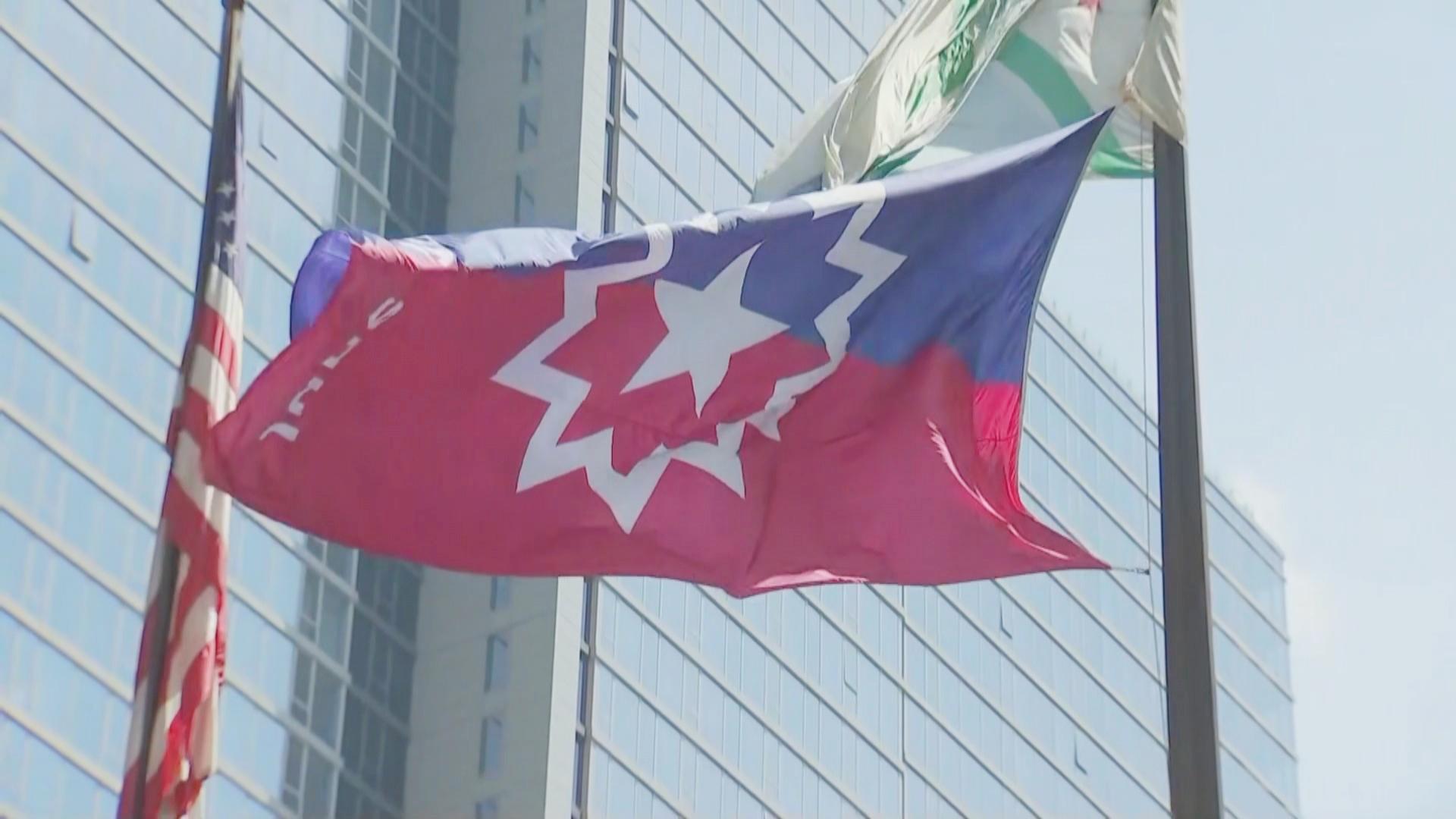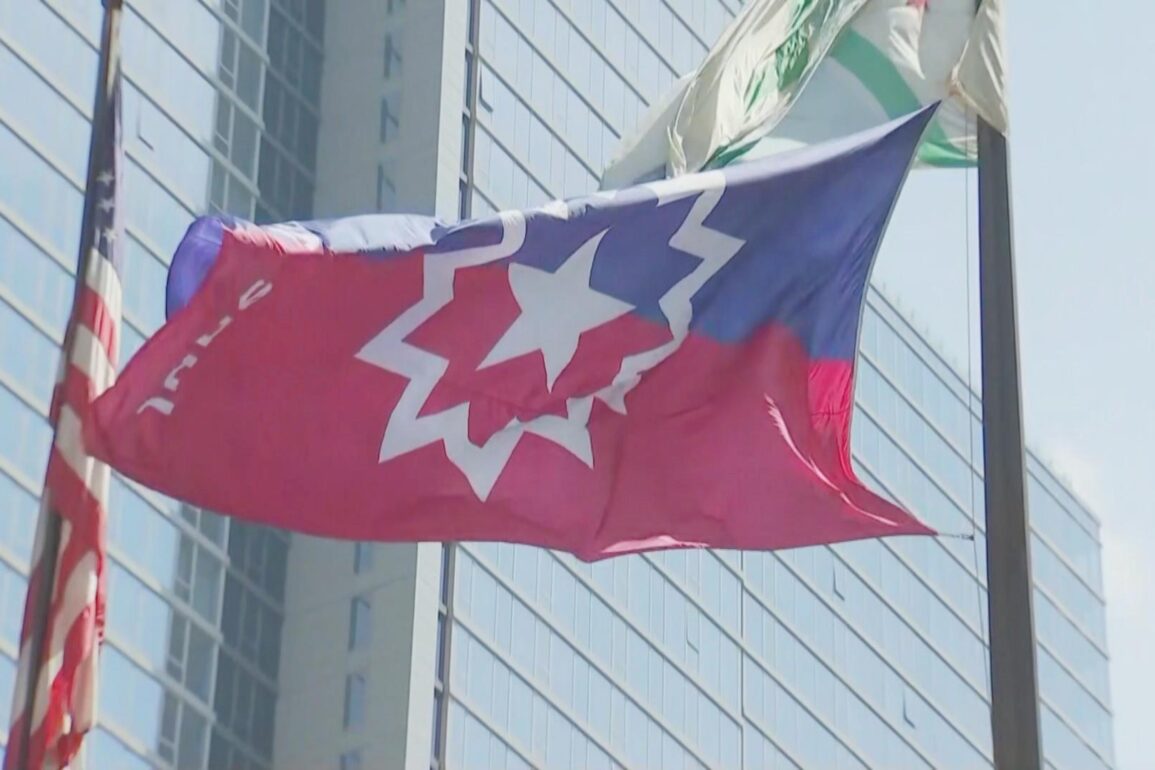 The Juneteenth flag is raised in Chicago during a ceremony on June 17, 2024. (WTTW News)
The Juneteenth flag is raised in Chicago during a ceremony on June 17, 2024. (WTTW News)
Chicago officials are set to once again tackle the thorny issue of reparations, as a new task force formed by Mayor Brandon Johnson launches an effort to determine whether and how the city should pay reparations to Chicagoans who are the descendants of enslaved African Americans.
Thanks to our sponsors:
The renewed effort is finally getting off the ground more than six months after Johnson agreed to earmark $500,000 in the city’s 2024 budget for the task force, the first time city officials have promised to use taxpayer dollars to do more than just promise to talk about what Chicago owes its Black residents as a result of the legacy of slavery and segregation.
To launch the work, Johnson signed an executive order that he said was “a pledge to shape the future of our city by confronting the legacy of inequity that has plagued Chicago for far too long.”
Johnson also formally apologized “on behalf of the city of Chicago for the historical wrongs committed against Black Chicagoans and their ancestors who have continued to bear injustices,” as part of the executive order.
Johnson promised make investments designed to rectify “decades of deliberate disinvestment in Black neighborhoods and communities.”
Black Chicagoans do not live as long as other Chicagoans, are more likely to be unemployed and incarcerated, and are less likely to own their own homes because of the legacy of slavery and the legal framework erected to enable discrimination based on race, according to the mayor’s office.
Johnson’s order gives the task force, which is set to operate under the authority of the mayor’s Office of Equity and Racial Justice and the Chicago City Council’s Black Caucus, a year to produce a report that will shape what reparations will look like in Chicago.
The task force is charged with not just identifying which policies have hurt Black Chicagoans but also with recommending how to remedy the policies responsible for “past injustices and present harm,” according to the executive order.
Johnson’s effort to tackle reparations comes nearly four years after the last time the City Hall spotlight focused on the issue. That effort was spurred in part by the demands for racial justice that swept the nation in the wake of the police murder of George Floyd in Minneapolis.
But that effort, which did not have the support of former Mayor Lori Lightfoot, never got off the ground.
In 2019, Evanston officials set aside $10 million in revenue from cannabis sales to help Black residents buy homes through mortgage assistance programs and fund home improvements as part of an effort to offer reparations to the descendants of formerly enslaved people. In March 2023, the Evanston City Council expanded that effort to offer $25,000 in no-strings-attached direct cash payments for those eligible.
But Evanston’s program is now facing a legal challenge that threatens its ability to continue, and if successful, would complicate any effort by Chicago officials to directly address the ongoing harm caused by systemic racism, the heart of slavery’s legacy.
As the new city task force gets underway, the Illinois African Descent-Citizens Reparations Commission is set to hold its first hearing, more than two and a half years after it was scheduled to start examining the “intergenerational impact of enslavement, racial terror, political disenfranchisement and ongoing racial discrimination.”
Created by a 2020 state law, the state commission is charged with working to preserve African American neighborhoods, developing vocational centers and ensuring Black-owned firms get a fair share of state contracts.
The commission will also advocate for the creation and enforcement of an Illinois Slavery Era Disclosure Bill. A Chicago law that has been on the books for nearly 25 years has never been fully implemented, according to information presented to a City Council subcommittee.
Contact Heather Cherone: @HeatherCherone | (773) 569-1863 | [email protected]


